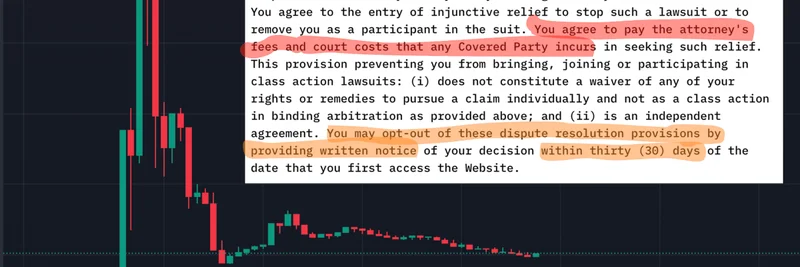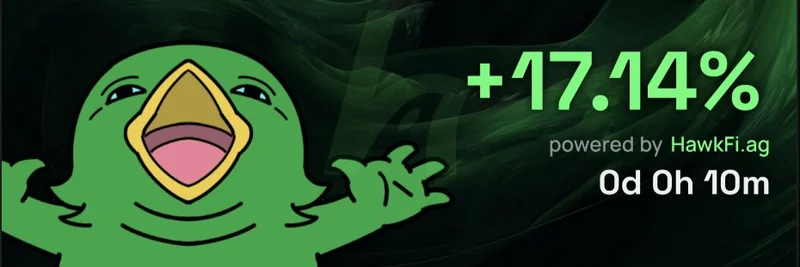In the wild world of meme coins, celebrity launches often promise moonshots but deliver rug pulls. The latest saga involves Kanye West—now known as Ye—and his YZY token, which exploded onto the Solana blockchain only to crash spectacularly. A viral tweet from trend spotter PixOnChain @PixOnChain pulled back the curtain on a buried legal clause that's got everyone talking.
PixOnChain's post, which has racked up thousands of views, lays it out plain: Kanye dropped the coin, hid a class action waiver in the terms, and now 32 holders are nursing losses of over $200k each. "Man went from running for president to running from legal action," the tweet quips. It's a brutal takedown of how hype meets harsh reality in crypto.
The Hype Behind Yeezy Money and YZY Token
It all started with Kanye's announcement: "YEEZY MONEY IS HERE. A NEW ECONOMY, BUILT ON CHAIN." Linking to money.yeezy.com, he positioned YZY as more than just a meme coin—it's supposed to power a new financial system free from centralized control. Minted on Solana with the contract address DrZ26cKJDksVRWib3DVVsjo9eeXccc7hKhDJviiYEEZY, the token launched on Meteora DEX.
The supply breakdown? 20% public, 10% liquidity, and the rest vested to Yeezy Investments LLC over months. Sounds structured, right? But red flags waved early: 94% of the supply in insider hands, with one multisig wallet holding 87%. Liquidity was single-sided, making it easy for big players to yank value.
Within minutes of launch, YZY pumped to a staggering $3 billion market cap. Traders piled in, fueled by FOMO and Kanye's star power. But the party ended fast—the price dumped hard, settling around $1 billion before sliding further. One trader reportedly lost $710k after buying high and selling low.
Unpacking the Class Action Waiver: Legal Armor Against Lawsuits
Here's where it gets shady. Buried in the terms on the Yeezy Money site is this gem of a clause—the class action waiver. In simple terms, a class action lawsuit lets a group of people team up to sue over the same issue, sharing costs and strength in numbers. This waiver? It bans that entirely.
The text reads: "To the extent permitted by law, you agree that you will not bring, join or participate in any class action lawsuit as to any claim, dispute or controversy that you may have against any of the Covered Parties. You agree to the entry of injunctive relief to stop such a lawsuit or to remove you as a participant in the suit. You agree to pay the attorney's fees and court costs that any Covered Party incurs in seeking such relief."
It goes on: "This provision preventing you from bringing, joining or participating in class action lawsuits: (i) does not constitute a waiver of any of your rights or remedies to pursue a claim individually and not as a class action in binding arbitration as provided above; and (ii) is an independent agreement. You may opt-out of these dispute resolution provisions by providing written notice of your decision within thirty (30) days of the date that you first access the Website."
Translation: If you get burned, you can't band together to sue. You have to go solo through arbitration—a private process that's often stacked against individuals. And if you try a class action anyway? You foot the legal bills for the other side. There's a 30-day opt-out window, but who reads the fine print before apeing in?
This isn't new in crypto, but slapping it on a celebrity meme coin screams "premeditated protection." As PixOnChain points out, with holders staring at six-figure losses, it's clear why this was included. Reports from sources like CoinTelegraph and Unchained Crypto echo the sentiment: this looks like a setup to shield against backlash from a pump-and-dump.
Market Mayhem: Insider Trading Allegations and Rug Pull Fears
The dump wasn't random. On-chain analysis shows insiders dominating supply, with top clusters controlling 70%+. Liquidity setups allowed quick exits, and the single-sided pool meant retail added USDC while deployers could pull rugs. Threads on X, like one from @0xdantex, trace wallets and scream "rug pull," claiming $40M vanished.
Even big names like Arthur Hayes jumped in, urging no dumps, only to call it "shit" later. Traders who chased the hype got rekt—some turning $768k investments into $58k scraps. It's a classic celeb coin tale: hype builds, insiders cash out, retail holds the bag.
Communities on Solana are buzzing, with posts labeling it the "most shameless rug in crypto history." And with 50k wallets affected, the emotional toll is real—folks feel exploited after months of buildup.
Lessons from the YZY Debacle for Meme Coin Enthusiasts
So, what can we learn? Meme coins are fun, but celeb-backed ones are minefields. Always DYOR: check supply distribution, liquidity, and yes, read those terms. A class action waiver is a huge red flag—it signals the team expects trouble.
On the flip side, Solana's speed enabled the quick pump, but also the fast dump. Tools like Jupiter DEX make trading easy, but vigilance is key. If it smells like a rug, it probably is.
Kanye's pivot from music and politics to crypto raises eyebrows— is this innovation or exploitation? As PixOnChain's tweet highlights, the line between visionary and villain is thin in meme land.
Stay safe out there, degens. Follow Meme Insider for more breakdowns on the latest token dramas and how to navigate the chaos. What's your take on YZY—genius play or total scam? Drop your thoughts below.




